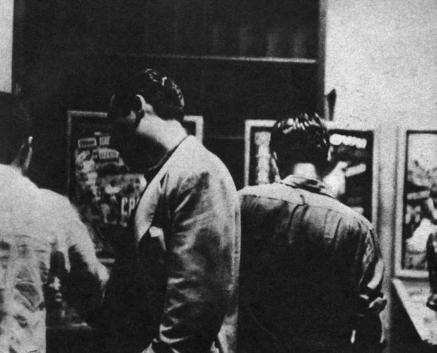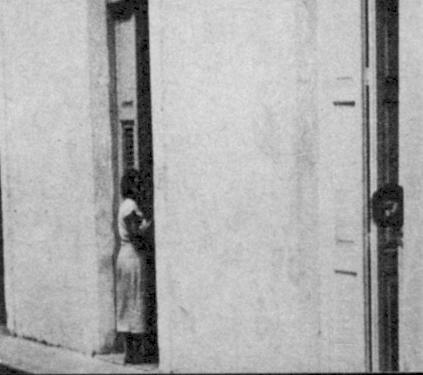Latin America
Related: About this forumWatching US Cuba policy in the theater of the absurd
Cuban-American lawmakers slipped new sanctions into a bill designed to keep the federal government open.
Trying to make sense of U.S. policy toward Cuba is like trying to make sense of a play in the theater of the absurd. The rationales offered by the policy’s defenders make no sense, and when they try to explain, they sound like characters in an Ionesco play. Recent legislative proposals from Cuban American members of the House of Representatives are prime examples.
Rep. Mario Díaz-Balart (R-Fla.), chair of the Appropriations Subcommittee on Foreign Operations, and Rep. María Elvira Salazar (R-Fla.), chair of the House Foreign Affairs Subcommittee on the Western Hemisphere, recently proposed new sanctions locking in Cuba’s groundless designation as a sponsor of international terrorism, blocking assistance to Cuba’s private sector on the grounds that it doesn’t exist, and punishing countries hosting Cuban medical missions for practicing “modern slavery.” The last two proposals became law in the omnibus appropriations bill passed last month to avoid a government shutdown.
Cuba is on the State Department’s terrorism list, even though the Department’s latest Country Report on Terrorism offers no evidence for Havana engaging in international terrorism. It cites Cuba’s harboring of U.S. fugitives who committed politically-motivated crimes in the United States more than 40 years ago. Meanwhile, the United States for years harbored notorious Cuban exiles like Orlando Bosch and Luis Posada Carriles guilty of myriad terrorist attacks against Cuba, including bombing a Cuban airline flight, killing all 73 people aboard, and bombing tourist hotels in Havana.
Early in the Biden administration, the White House said it was “committed to carefully reviewing” Cuba’s designation, and in October 2022, Secretary of State Antony Blinken told Colombia’s President Gustavo Petro, “We will continue as necessary to revisit those to see if Cuba continues to merit that designation.” But just five months later, he told Congress, “We are not planning to remove them from the list.” Deputy Assistant Secretary of State Eric Jacobstein told a group of Democratic lawmakers that, contrary to what they had been told previously, there was no review of Cuba’s designation underway.
Asked in a 2023 press briefing why Cuba was still on the terrorism list, a State Department spokesperson replied that it was because of Cuba’s “long track record of egregious human rights abuses, suppression of a free press, suppression of civil society” — which has nothing to do with international terrorism. The official also acknowledged, oblivious to the irony, that the U.S. and Cuban governments engage in regular counter-terrorism cooperation talks under the auspices of a law enforcement agreement concluded during the Obama administration.
Last year, Díaz-Balart joined Salazar to sponsor a bill preventing the Biden administration from removing Cuba from the terrorism list until it becomes a multi-party democracy. Although the bill is unlikely to become law this Congress, its disregard for the statutory criteria for designating a country as a sponsor of terrorism brings to mind Humpty Dumpty’s declaration inAlice in Wonderland, “When I use a word, it means just what I choose it to mean.”
Díaz-Balart had better luck with the omnibus appropriation. When Congress fails to do its job passing the 12 appropriations bills that fund the government, it resorts to omnibus appropriations that lump all the unfinished bills together into one must-pass bill to avoid a government shutdown. All sorts of dubious measures make their way into omnibus appropriations because there just is not time to filter them all out. As chair of the Appropriations Subcommittee on Foreign Operations, Díaz-Balart was perfectly positioned to insert new Cuba sanctions into the omnibus.
The omnibus appropriation prohibits the Biden administration from supporting Cuba’s emerging private sector of some 10,000 new businesses, despite the fact that promoting private enterprise has been U.S. policy under Presidents Obama, Trump, and Biden. Rep. Salazar calls the private sector a “myth” because some of the businesses are owned by relatives of government officials, even though the vast majority are not. A year ago, Díaz-Balart forced the Biden administration to abandon plans to help the private sector by threatening to block aid for Ukraine. His appropriations language, now law, blocks U.S. funding for “business promotion, economic reform, [or] entrepreneurship” in Cuba.
Another provision of the omnibus appropriation would punish countries that pay Cuba for providing medical services on the grounds that such contracts constitute “modern slavery.” Since the 1960s, Cuba has sent some 400,000 medical professionals to serve in 164 countries, but in the past two decades medical service contracts have become an important source of foreign exchange earnings.
In 2006, President George W. Bush began offering entry to the United States and a fast path to citizenship to entice Cuban doctors serving abroad to defect. Some of those who defected criticized the pressure placed on them to serve abroad, harsh and restrictive working conditions, and the percentage of the contract fees they received. By contrast, doctors serving in the programs report that they volunteered because the wages are significantly higher than their wages in Cuba, and out of a desire to help people in need.
During the Obama administration, U.S. and Cuban medical personnel worked together in Haiti after the 2010 earthquake and in west Africa fighting Ebola virus outbreak. President Obama, in his 2016 speech to the Cuban people, praised Cuba’s medical internationalism, saying “No one should deny the service that thousands of Cuban doctors have delivered for the poor and suffering.” But Cuban American Republicans do deny it.
The original House version of the foreign operations appropriation that came out of Díaz-Balart’s subcommittee and passed the House would have cut off U.S. assistance to the Pan American Health Organization and all countries and international organizations that have medical contracts with Cuba. Those provisions did not make it into the final omnibus legislation. But the bill that passed denies entry to the United States and threatens financial sanctions against “officials of foreign governments and their immediate family members” whose governments have medical service contracts with Cuba.
Cuba has medical personnel serving abroad in dozens of countries, including Mexico, Italy, Qatar, Jamaica, several smaller Caribbean states, and Northern Ireland. Is it really in the U.S. national interest to ban their government officials from the United States? Would Mexico’s indispensable cooperation on migration and narcotics trafficking survive such a ban? Luckily, during the negotiations over the final omnibus bill, cooler heads prevailed and made these sanctions subject to a presidential waiver. But they are still the law of the land, with Washington once again arrogating to itself the right to sanction other countries for their relations with Cuba, as if neither their sovereignty nor Cuba’s counts for anything in Washington.
That is the final absurdity of U.S. Cuba policy. It’s not just that so much of it is built on false premises and distorted facts. It’s that a small group of conservative Cuban American legislators, obsessed with reducing Cuba to penury, have been able to dictate policies that damage broader U.S. interests in Latin America, Europe, and the Global South. They get away with it because no issue is more important to them than Cuba, and Cuba is not important enough to Biden for him to stand up to them.
These policies are not cost free. Like water dripping on a stone they gradually erode the good will of other countries, diminishing Washington’s “soft power.” The accretion of damage is chronicled by the annual vote at the United Nations General Assembly on Cuba’s resolution condemning the U.S. embargo. When the resolution was first introduced in 1992, it passed with 59 countries in favor, 3 against (the United State, Israel, and Romania), and a majority, 71 abstaining. Last year 187 countries voted for the resolution. Ukraine abstained and only Israel joined the United States in voting no.
When American patriots declared their independence from the British crown, they detailed their reasons in the Declaration of Independence out of a “decent respect to the opinions of mankind.” That respect is not a virtue Washington policymakers should abandon just because the United States has become a superpower.
(permission granted by author to republish in entirety.)
https://responsiblestatecraft.org/congress-cuba/
marble falls
(62,051 posts)... and make this aspect of US foreign a joke to the rest of the planet.
Marcus IM
(3,001 posts)The Miamicubano "exiles" are just the front/cover for a much larger push for the collapse of Cuba for the capital venture vultures to come in and privatize Cuba's infrastructures.
Like the Cuba of before the El Movimiento 26 de Julio – the 26th July Movement - that led to the ousting of the US backed blood-soaked Batista dictatorship.
![]()
marble falls
(62,051 posts)Old Crank
(4,645 posts)Relationships with Vietnam.
The Cuban stance is a tradgedy.
Marcus IM
(3,001 posts)Post revolution Cuba never waged war on the US.
The 1959 Cuban revolution was inspired by the discontent of US gangster imperialism and hegemony.
https://www.dvarchive.com/700-0598/1959-A-celebration-of-Fidel-Castros-victory-over-Batista-takes-place-in-the-streets-of-Havana-Cuba-and-turns-destructive-when-some-rioters-start-destroying-cars-and-parking-meters.html
Old Crank
(4,645 posts)that Commie countries have bad economies.....
this would not have happed but for oiur support of the nasty dictator Batista that we tried to keep in power.
Judi Lynn
(162,377 posts)They are blissfully unaware that Havana was used as a "rest and recreation" town by the U.S. Navy, lucky Cubans! ![]()
At one time online you could find old photos taken by men who were sailors then, sitting around in bars with their bar girls. So inspiring! I noted the women didn't look all that impressed!
This publication can really explain a lot to a newcomer to the subject. It was published in 1956:
GUIDE TO AFTER-DARK
HAVANA 1956
https://cuban-exile.com/doc_176-200/doc0186.html
Here's the Entertainment menu section:
https://cuban-exile.com/menu1/%21entertain.html
From this chapter:
HAVANA IS A MAN'S TOWN



Page 29
It's a bad town...It's a beautiful town...It's an ugly town...


Page 30
HAVANA IS A BAD TOWN
HORSE racing, dog racing, jai alai, cock fighting and the roulette wheel–they all get a big play in Havana. Twenty years ago, something new was added when Jesse Owens went down there to race–and beat–a horse. Gambling isn't the only diversion, however. The nightclub shows are fast, tough and guaranteed to keep you awake.


Page 31

. . .
Page 34
HAVANA IS AN UGLY TOWN
HAVANA'S slums are second to none, anywhere. Drifters float in here from all over the world to lead their strange, half-world lives–not of this world, nor out of it. Third-rate hotels, easy pickups, filth piled up in the streets–they're all part of this city of contrasts.
(To view photos it's necessary to right-click, then choose "open link in a new tab" and the photo should appear next.)


ETC.,
I first ran across this website on the internetS in the early 2000's, after Elian Gonzalez was all over the news every day. As mentioned, it was published years before the revolution, of course.
Also, probably mentioned in the "guide" are the "Nightclubs in the Sky" which flew between Miami and Havana, which had dancers, cocktails, champagne, etc.!
Marcus IM
(3,001 posts)I've been to quite a few Caribbean countries and have seen the "red light" areas.
None were as busy and populated with prostitutes of all types as Calle Ocho (Eighth Street, Miami).